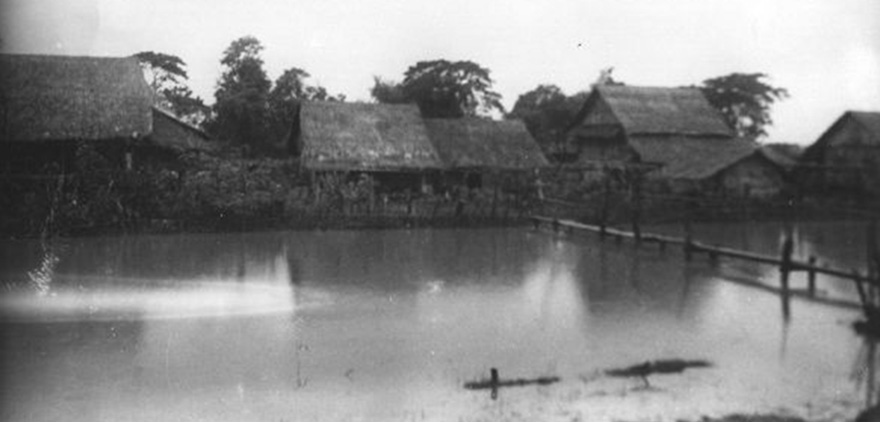
As a child, Christmases were always spent at my grandparents’ house on the south coast of England in Bournemouth. There, my five cousins and I would be spoilt rotten by my grandmother who would feed us to bursting on jam sponges, brownies and other such treats.
Amidst this close family period of togetherness, there was always the shadowed presence of my grandfather; a short, reclusive man, who – after marrying my grandmother when he was in his late forties – was already well into his twilight years at my birth.
All the grandchildren were scared of him when they were young. Despite being deaf, he seemed to have an uncanny ability to sense when wrongdoings were underway, and, although he rarely spoke, his stony glare would be enough to send shivers and whispers round the room.
As we became older, he became less a figure of fear and more a subject of curiosity and mocking. We created urban myths about him – that he was not really deaf, that he had spy holes in the walls, that he kept notes on each of us, recording our every movement in a secret diary.
One year, my sister and I were rooting through the house, something we frequently did as there was always plenty of strange junk stashed away in cubby holes. On opening a small cupboard under the bathroom sink we were surprised to find parcels of food hidden away. Tins of homemade jam and preserved fruit dated half a decade ago, multipacks of Mars and Snickers stuffed right to the back, everything rotten or in crusted packets with the seals turning orange.
We knew it all belonged to our grandfather; his curious habits seemed to have no bounds – shooting at squirrels with a rifle, scraping a lone pea off a plate into a dish in the fridge for later, or simply locking himself away for hours at a time.
My uncle once told me that he had seen him out in the garden, in the middle of a storm, clutching a saucepan whilst feeling the falling rain with his hand. He was setting up numerous pans to collect the water, to store inside for later. The house was in an upper-middle class suburb; running water was not a rare commodity.
When my grandfather passed away, I spent an afternoon sifting through his boxed-up pictures, many of them from his time in the army as an engineer in Burma –predominantly on the front line. I had always been aware that he’d been in the war in some capacity but had never really known about it in any detail; he’d never really spoken about it. He’d never spoken of anything really. As far as I’m aware he kept no journal, or if he did, it is hidden or destroyed.
Like many, he was unable to recount his experiences in the war, as far as I know, to anyone. Which is strange when you think about it: these days, every form of media is filled with detailed accounts of the world wars – literature, films, poems – yet still it remains an incomprehensible period in time for our generations. Accounts always seem sensationalised, trivialised, romanticised or too humorous to be real. They paint a picture that seems alien, that we could never be a part of.
It will not be long before all that’s left are second or third or fourth-hand tales – old family anecdotes or the abstract images of popular culture. Stories stashed away in attics and boxes – rotting like Mars bars at the back of the cupboard, hardly daring to have once been true.
Photo courtesy of San Diego Air and Space Museum Archive

Add new comment